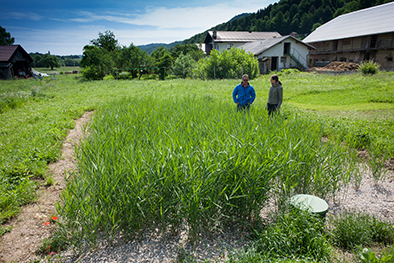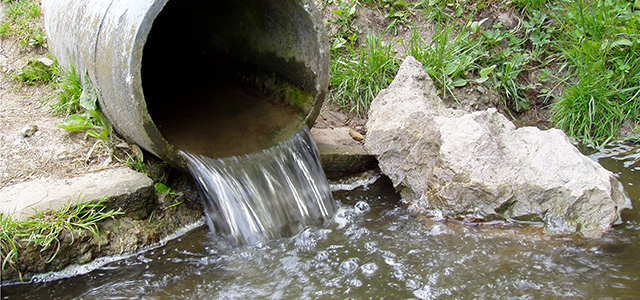Since December 2015, Global Water Partnership in Central and Eastern Europe develops a project proposal that aims to shift existing water paradigm by an innovative wastewater management in the rural areas.
The problem
65 % of the total population in the Danube region is not connected to wastewater treatment plants; moreover, the quality and efficiency of wastewater services varies widely within the region, and is mostly below international good practices (World Bank, 2015). There are plans that numerous small villages and towns will be equipped with wastewater treatment plants in the next future.
The selection of treatment technologies is of utmost importance, because of the major effect on water quality and nutrient management. This is of special importance in rural areas where wastewater management can be integrated with water and nutrients needs in agriculture thus enabling sustainable solutions for both.
The awareness on the importance of wastewater treatment and its direct connection with drinking water quality and other dimensions of water security is low. Moreover, there is a lack of sufficient knowledge on sanitation planning, sustainable sanitation and technologies for wastewater treatment and reuse, as well as the needed public participation, especially community engagement, to achieve the sustainability of the system.
The solution
Researches have shown that there are interesting opportunities to create sustainable wastewater treatment systems, which can enable water and nutrient reuse, energy recovery and saving water resources on a local level. Sustainable wastewater treatment systems thus allow closing material flows and have beneficial effects on the water cycle. Innovative decentralized infrastructure systems based on environmentally sound technologies have considerable advantages compared to conventional centralized systems and therefore are essential for sustainable development.
Our goal
The main objective is to bridge the gap between legislation, current practice and integrated approaches; to redirect nutrient load from surface waters in the Danube region into agriculture and to improve water quality, which is in line with the objectives of the EU Strategy for the Danube Region (EUSDR). We aim to change the water paradigm by an innovative approach to the challenges in wastewater in rural areas in the Danube region of Central and Eastern Europe.

Flagship project of the EU Strategy for the Danube Region
The team of Global Water Partnership in Central and Eastern Europe (GWP CEE), the University of Ljubljana and WISDOM organization from Moldova received a grant from the European Union START - Danube Region Project Fund for a project called SANDANUBE - Sustainable sanitation in small settlements of the Danube region. START is a new pilot initiative of the EUSDR which provides small grants for the development and implementation of Danube Region projects.
In addition, the project idea received support from EUSDR, Priority Area “To restore and maintain the quality of waters” in October 2015.
SANDANUBE
The main objective of SANDANUBE is to develop a project proposal which can be then applied to different funding programmes. START funding will be used for funding mapping, partners and stakeholders ’analysis, legislation surveys and a preparation of the overall project proposal. A workshop with a study visit will be organized on 19-20 April in Ljubljana, Slovenia that has been named the European Green Capital 2016.
Exchanging knowledge and experiences within the GWP CEE partner and stakeholder network will be one of the key elements for a successful project application for funding programmes of the European Union. It can be later replicated beyond the Danube region.
In the broader context, the project also contributes to the Sustainable Development Goals (SDG) and especially SDG 6 to ensure access to water and sanitation for all.
The project is part-financed by the European Union.
For more information about the SANDANUBE project, please contact Sabina Bokal, e-mail: sabina.bokal@gwpcee.org.
Top photo: City Park, Nitra, Slovakia, May 2008. Credit: GWP CEE/Muller
Photo 1: Constructed Wetlands by Iztok Ameršek
